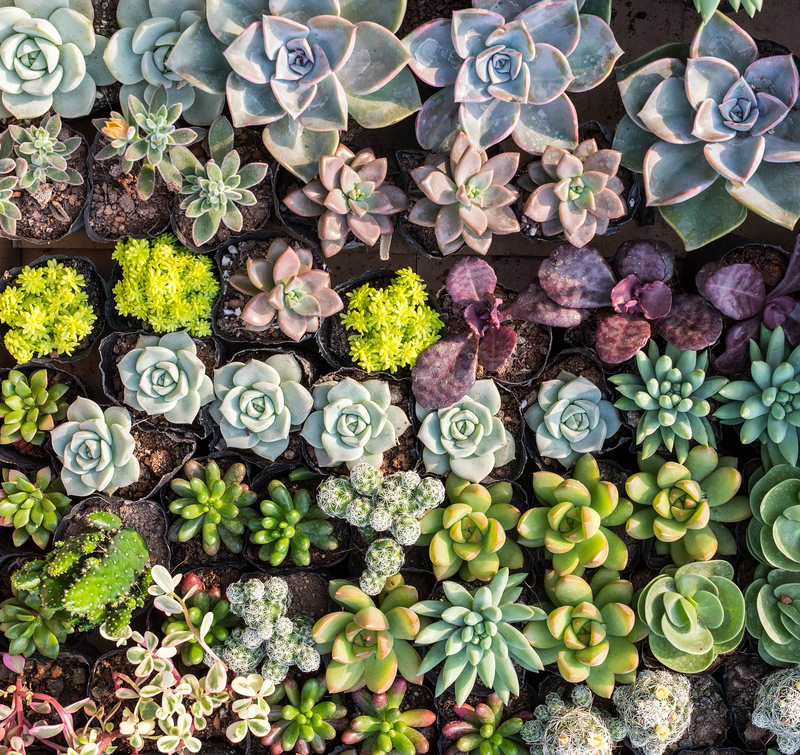Caring for Your Garden Plants as Winter Bites
Posted on 31/08/2025
Caring for Your Garden Plants as Winter Bites: The Ultimate Guide
As the frosty chill of winter arrives, caring for your garden plants as winter bites becomes an essential skill for every gardener. The season brings not only festive cheer but also a range of challenges for your beloved outdoor plants. Cold winds, freezing temperatures, and unpredictable weather can quickly take a toll on your garden, making preemptive winter gardening care a necessity. This comprehensive guide will help you understand the steps to protect your garden, maintain plant health, and ensure your plants survive and thrive until spring.
Why Winter Care for Garden Plants Matters
Many gardeners underestimate just how critical winter care is. Winter might seem like a period of dormancy, but what's happening above and below the soil surface can make a world of difference to your garden's long-term vitality. Cold weather plant care ensures your shrubs, flowers, vegetables, and trees start the next growing season robust and resilient.
- Freezing temperatures can damage plant tissues and roots.
- Cold winds cause dehydration, as plants lose moisture faster than they can absorb it from frozen ground.
- Snow and ice can break delicate branches and compact soil--limiting root development.
Understanding Your Hardiness Zone and Plant Selection
The first step in preparing your garden plants for winter is to know your hardiness zone. This determines which plants are most likely to survive in your climate. Most garden centers indicate a plant's cold tolerance. Always choose varieties suited for your zone if you want your winter garden plants to come through unscathed.

How Winter Affects Different Types of Garden Plants
Every type of plant reacts differently to the cold. Understanding these variations can help you tailor your care for each sector of your garden.
- Perennials: These plants go dormant but need root protection.
- Annuals: Often complete their life cycle before winter; however, seed collection and proper mulching can help recurrences.
- Evergreens: Maintain leaves and can lose moisture quickly in cold winds.
- Tender Plants: These require extra protection or may need to be brought indoors.
Special Care for Container Plants
Container plants are particularly vulnerable as their roots are above ground and more exposed to temperature swings. Consider moving pots to sheltered spots, grouping them for mutual warmth, or wrapping containers in burlap or bubble wrap for insulation.
Essential Techniques for Caring for Your Garden Plants in Winter
Here's a detailed look at the core techniques to protect your winter garden plants and keep them healthy as winter bites.
1. Mulching: Nature's Blanket
One of the best strategies for protecting plants from cold is to apply mulch. A thick layer (2-4 inches) acts as nature's blanket, regulating soil temperature and preventing rapid freeze-thaw cycles that can damage roots.
- What to Use: Shredded leaves, straw, bark chips, or compost.
- When to Apply: Wait until the ground starts to freeze so rodents don't nest beneath.
- Where to Focus: Mulch the base of perennials, roses, and around shallow-rooted shrubs.
2. Watering Plants Before Winter Sets In
Many gardeners make the mistake of ceasing watering once temperatures drop. In reality, well-hydrated plants withstand the cold better. Continue watering, especially newly planted trees and shrubs, until the ground is frozen.
- Avoid wetting leaves late in the day to reduce freeze risk.
- Deep watering encourages root growth below the frost line.
3. Using Protective Coverings and Cloches
Covering your garden plants is crucial during unexpected hard frosts. Options include floating row covers, burlap, frost cloths, or even homemade cloches (like cut-off plastic bottles for seedlings).
- Tip: Avoid plastic during sunny days--overheating can occur.
- Anchor covers well so wind doesn't blow them away.
4. Pruning with Care
Late fall is the best time for selective pruning. Prune dead or diseased wood but avoid heavy pruning as it may stimulate new growth, which is more susceptible to winter injury.
- Roses: Wait until late winter or early spring for major pruning.
- Deciduous trees & shrubs: Prune when dormant.
5. Preventing Winter Pest Problems
Just because it's cold doesn't mean your garden is free from pests. Mice, voles, and rabbits may gnaw on bark and roots.
- Install wire mesh or tree guards around trunks.
- Clean up fallen fruit and debris to minimize attractants.
Care for Specific Garden Plants During Winter
Evergreens: Protection from Windburn and Freeze
Winter burn is common in evergreens as they lose water through needle transpiration. Wrap sensitive shrubs in burlap or apply an anti-desiccant spray. Water on warm days when possible.
Roses: Shelter and Insulate
Pile mulch or soil around rose crowns to insulate (hill-up method). For hybrid teas, consider a rose collar filled with mulch, or wrap with burlap.
Fruit Trees: Prevent Sunscald and Rodent Damage
Paint trunks with a white latex paint (diluted with water) to prevent sunscald. Install tree guards to deter nibbling rodents. Remove all fallen fruit and leaves.
Bulbs: Prepare for Spring
Most spring-flowering bulbs require winter chilling. Plant them in well-drained soil and cover with mulch once the earth starts to freeze. In very cold areas, consider lifting tender bulbs and storing them indoors.
Vegetables: Extend Your Harvest with Row Covers
Cold-hardy vegetables such as kale, spinach, and carrots can survive longer with the use of row covers or cold frames. Harvest root crops before the ground becomes too hard to dig.
The Role of Snow in Caring for Your Garden Plants as Winter Bites
Not all winter elements are harmful! Snow acts as an insulator, protecting plants from temperature extremes. Don't rush to clear snow unless its weight is threatening to break branches. Use a broom to gently brush off heavy accumulations.
Common Mistakes to Avoid in Winter Plant Care
- Neglecting to mulch: Unprotected soil can freeze deeply, harming roots.
- Watering at the wrong times: Water in the mornings to avoid ice encasing plant tissue overnight.
- Heavy pruning too late: This can promote tender new growth that won't survive frost.
- Forgetting container plants: Remember, containers freeze more quickly than ground soil.
Preparing for Spring: Steps After Winter
When the cold lets up, gradually remove mulch and winter coverings. Prune any lingering winter damage, water deeply, and fertilize as new growth appears. This transition period is crucial for reinvigorating your garden plant care strategy.
Tips for Gardeners: Maximizing Winter Interest
While much of your garden rests, keep it visually appealing by using:
- Evergreens for year-round color
- Berries and seed heads for wildlife and winter interest
- Decorative bark and grasses for texture
Frequently Asked Questions about Winter Plant Care
Do I need to feed my garden plants during winter?
Generally, avoid fertilizing as growth slows and roots aren't actively absorbing nutrients. Resume feeding as new growth begins in spring.
How do I know if my plants survived the winter?
Wait until late spring before removing what appears to be "dead" plants; often, new shoots appear after time.
Is it safe to prune woody plants in winter?
Pruning is safe for most deciduous trees and shrubs when they're dormant, but avoid major cuts to evergreens mid-winter.

Conclusion: Protecting Your Garden Plants as Winter Bites
Caring for your garden plants as winter bites doesn't have to be daunting. With thoughtful preparation--mulching, watering, covering, and monitoring--you'll build a strong foundation for a lush spring garden. Remember, every garden is unique, so observe and adapt these tips to your specific conditions. Your attention during winter will yield healthier, more vibrant plants all year long.
Stay proactive, embrace the beauty of the cold, and cherish the quiet promise of growth lying beneath the snow.
Summary Checklist for Winter Plant Care
- Know your hardiness zone and plant accordingly.
- Mulch and insulate exposed roots.
- Water thoroughly before the ground freezes.
- Prune dead and diseased wood but avoid aggressive pruning.
- Protect with covers, especially during severe cold snaps.
- Monitor container plants and move to sheltered areas.
- Prevent pest and rodent damage with guards and cleanup.
Apply these winter plant care strategies and you'll be rewarded with a garden that not only survives the harshest months but flourishes brilliantly once spring arrives!
Latest Posts
Mastering the Essentials of Container Gardening
Finding Purpose in Overgrown Greenery: A Makeover Guide
3 Power-Packed Tips for Winning the Weed War

